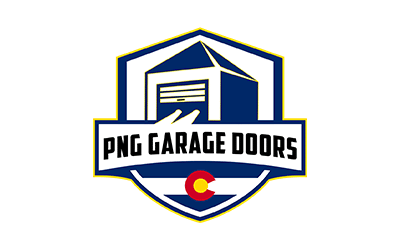Is your garage door getting grumbly and loud? Does it seem to be opening and closing slower than it did when it was first installed? Over time, the moving parts within the garage door mechanisms can start to rub against the garage door tracks, making it sluggish and noisy. If left untreated, the friction can cause the door to eventually stop working.
Before you panic-call your friendly neighborhood garage door mechanic, there are a few things you can do yourself to get your door running smoothly and quietly once more.
How Often Should You Lubricate Your Garage Door?
To keep your garage door running optimally, we recommend lubricating your garage door at least once a year, with the ideal range being every 6 months. Colorado’s erratic temperature jumps will wreak havoc on your door’s delicate components, so lubing your garage door’s tracks frequently can add years to its life.
What To Do Before Lubricating Your Garage Door
- Tighten the nuts and bolts of your door. You’ll want to be careful not to over-tighten them while still making sure everything is secure. If you notice any particularly worn parts of the door, it’s a good idea to replace them.
- Inspect and clean the rollers. A lot of garage door rollers have bearings that can break down and become loose, which can make them rattle around the track. Use a damp rag to clear out any dust and dirt to help prevent this breakdown process.
- Tighten the opener chain. When the garage door opener chain becomes loose, it can make a slapping sound and prevent the door from opening smoothly.
If you’ve done all three steps and your door is still causing issues, it’s time to lubricate it.
Recommended Lubricants: What Should You Use To Lubricate Your Garage Door?
Your best bet is to choose a silicone spray or white lithium grease for your garage door lubricant. Silicone sprays in particular are great in Colorado, as they can withstand a variety of temperatures. Aerosol sprays are ideal for getting the lubricant into small spaces and between the movable parts. It’s best to avoid standard degreasers like WD-40, mechanics’ grease, or engine oil, as they can cause dirt and dust buildup that will break down the door parts.
How To Grease Your Garage Door — A DIY Step-By-Step Guide
- Close Garage Door: Close the garage door and turn off the power to the opener.
- Clean Garage Door Tracks: Wipe down the tracks with a damp rag to get all dust, dirt, and debris. It is generally not recommended to grease the garage door tracks, so try to apply sparingly if you choose to do so.
- Lubricate Garage Door Hinges: Open the door and lubricate each of the hinges. Spray on both sides of the bracket and wipe off the excess with a wet cloth.
- Lubricate Garage Door Rollers: Next you’ll want to tackle the rollers. Spray the grease on the ball bearings. Open and close the door manually to let the grease spread evenly. Wipe away any excess. Note: if you have nylon rollers with sealed ball bearings, skip this step.
- Lubricate Garage Door Springs: Lubricate the springs and bearings at the top of the garage door. As before, open and close the door manually to evenly distribute.
- Lubricate Garage Door Belt/Chain: If your door has a garage door chain or belt drive, spray some grease on the chain/belt and run the opener to distribute evenly. Be sure to also apply it to the arm bar or top rail, if your door has one.
- Test: Give it a test run. If it’s still noisy or slow, see if you can identify where the problem lies and see if adding a little more lubricant to the problem area solves the issue.
Nine times out of ten, just cleaning and lubricating your door can get it working smoothly again. However, if you’ve completed all the steps above and believe this is that tenth time out of ten, give us a call! We’ll get your door running like new as soon as possible.
